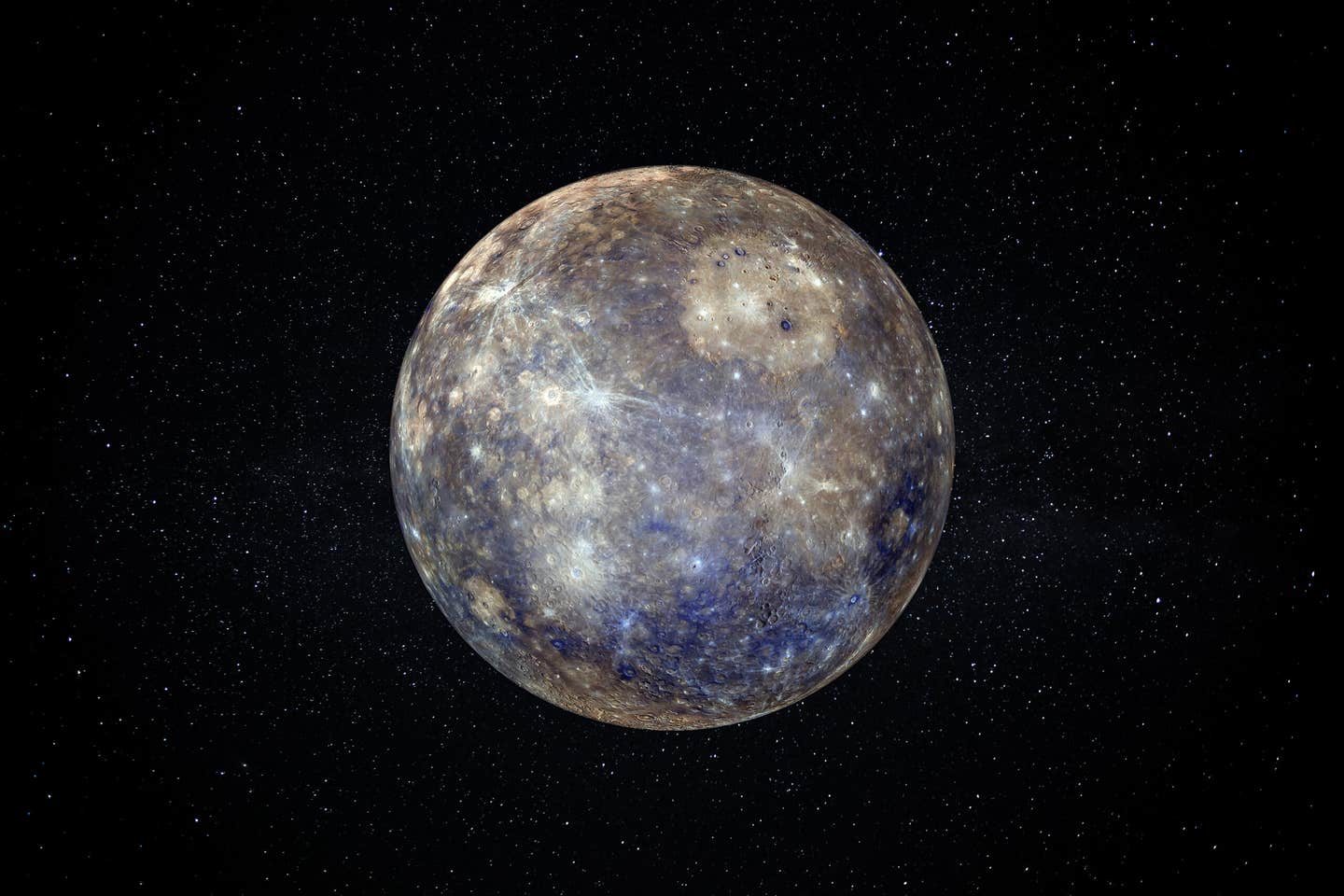Scientists unlock the secrets of aging and accelerated evolution
Aging, often associated with the gradual decay of bodily functions, remains a natural part of life’s journey.

[Dec. 14, 2023: JD Shavit, The Brighter Side of News]
Aging, often associated with the gradual decay of bodily functions, remains a natural part of life's journey. (CREDIT: Creative Commons)
The mystery of aging has captivated human curiosity for centuries. In our quest to understand and potentially reverse the aging process, we delve into the intricate tapestry of biology, seeking answers to age-old questions.
Aging, often associated with the gradual decay of bodily functions, remains a natural part of life's journey. However, the emergence of this phenomenon during the course of evolution has long puzzled biologists. Is aging an inevitable outcome of life, or are there organisms that defy its grasp? Can we even envision a phenomenon known as "negative aging" or rejuvenation, where vital functions improve with age?
These perplexing questions have driven researchers at the Institute of Evolution, led by the esteemed Academician Eörs Szathmáry, to embark on a groundbreaking quest for answers.
Challenging existing paradigms, the Institute's scientists set out to validate a theory that had hitherto eluded empirical proof. This theory posits that, under specific conditions, evolution can favor the proliferation of genes that govern senescence—the aging process itself.
Related Stories
To put this theory to the test, the researchers turned to a powerful tool: a sophisticated computer model they had meticulously developed. This algorithmic wonder is capable of simulating long-term processes within populations of organisms and genes, all meticulously controlled by the scientists.
With this computational model, they could simulate evolutionary scenarios and yield results within hours rather than the countless eons required by Mother Nature. Indeed, modern evolutionary research is inconceivable without the aid of such computational marvels.
At the heart of their investigation lay a fundamental question: Does aging hold any meaning in the grand scheme of evolution? Does it serve an evolutionary function, or is it merely a bitter by-product of existence? Eörs Szathmáry explains, "Aging can have an evolutionary function if there is a selection for senescence.
In our research, we aimed to uncover this selection." The classical view posits that aging emerges in populations without any selection because individuals would eventually succumb to illness or accidents. As a result, natural selection's force within the population would wane, creating an opportunity for genes that induce senescence to accumulate. Under this perspective, aging is a collateral consequence of evolution, devoid of any adaptive function.
Over the past century, various evolutionary theories have attempted to explain the seemingly inevitable nature of aging, often suggesting that it serves no positive purpose. However, the discovery of non-aging organisms has thrown a wrench into these assumptions, leading more researchers to question the inevitability of senescence and entertain the idea that aging might confer certain advantages.
Szathmáry elaborates, "It has become accepted in the evolutionary biology community that the classical non-adaptive theories of aging cannot explain all the aging patterns of nature, which means the explanation of aging has become an open question once again." Alternative adaptive theories propose that senescence could have positive consequences. For instance, in a changing environment, aging and death may be advantageous because they reduce competition, allowing more adaptable progeny with superior gene compositions to thrive.
However, this scenario holds true only when individuals are primarily surrounded by their relatives. In sexual reproduction, non-aging individuals can "steal" the more advantageous genes from their aging counterparts, negating significant senescence.
After subjecting their computer model to rigorous testing, Hungarian biologists discovered a surprising revelation—aging can indeed accelerate evolution.
In a dynamic world, this acceleration proves advantageous, as it expedites the acquisition of suitable traits, thereby bolstering the survival and proliferation of descendant genes. This finding suggests that senescence may possess real evolutionary advantages and could be favored by natural selection.
In essence, aging, once considered an inevitable and detrimental process, may play a pivotal role in the intricate dance of evolution. This newfound perspective challenges conventional wisdom, inviting us to reevaluate the significance of aging in the context of life's ongoing journey. As we delve deeper into the implications of these findings, it becomes evident that aging is not merely a passive passenger on the evolutionary train but an active participant shaping the course of adaptation.
To appreciate the profound implications of this discovery, it is essential to understand the mechanism through which aging accelerates evolution. In a world characterized by constant change, adaptability is key to survival. By aging, organisms create a dynamic environment where the pressure to adapt intensifies. This accelerated pace of adaptation enables populations to swiftly identify and adopt advantageous traits, ensuring their continued existence.
Imagine a world where species do not age, where individuals remain static in their genetic makeup. In such a scenario, adaptation to changing environments would be sluggish, if not impossible. The advantage of aging lies in its ability to drive innovation within a population, fostering the emergence of individuals with novel traits better suited to the evolving world.
Furthermore, aging's role in reducing competition within populations cannot be understated. In a world teeming with diverse organisms, competition for resources, mates, and survival is relentless. Senescence acts as a natural mechanism that thins the ranks of the elderly, allowing younger, more adaptable individuals to flourish. This reduction in competition provides a window of opportunity for advantageous traits to spread, ultimately benefiting the entire population.
However, it is crucial to note that this phenomenon primarily thrives in populations where individuals are predominantly surrounded by their relatives. In such close-knit communities, aging can foster cooperation among family members, leading to shared benefits and an increased likelihood of advantageous genes persisting.
The implications of this research reverberate far beyond the confines of theoretical biology. They challenge our understanding of aging as a purely detrimental process and open the door to new perspectives on the evolution of life itself. Rather than viewing aging as a passive outcome of existence, we must recognize it as an active force shaping the trajectory of evolution.
The discovery of aging's potential to accelerate evolution sparks a myriad of questions and avenues for further exploration. For instance, how does this phenomenon manifest in various species? Are there specific conditions or environmental factors that enhance or diminish the role of aging in evolution? Can we harness this knowledge to better understand and potentially manipulate the aging process in humans?
The pursuit of these questions promises to unveil even more layers of complexity within the intricate web of life. It challenges us to rethink our preconceived notions and invites us to embrace the multifaceted nature of evolution. Aging, once perceived as an unyielding adversary, may well hold the keys to our species' continued adaptability and survival in an ever-changing world.
As we continue to unravel the mysteries of aging and its connection to evolution, one thing is certain: the journey is far from over. Each discovery brings us closer to understanding the profound interplay between life, time, and the inexorable forces of change.
In our quest for knowledge, we may ultimately uncover new avenues to not only extend the human lifespan but also enhance our ability to adapt, thrive, and evolve in the face of an ever-shifting world.
Note: Materials provided above by The Brighter Side of News. Content may be edited for style and length.
Like these kind of feel good stories? Get the Brighter Side of News' newsletter.



